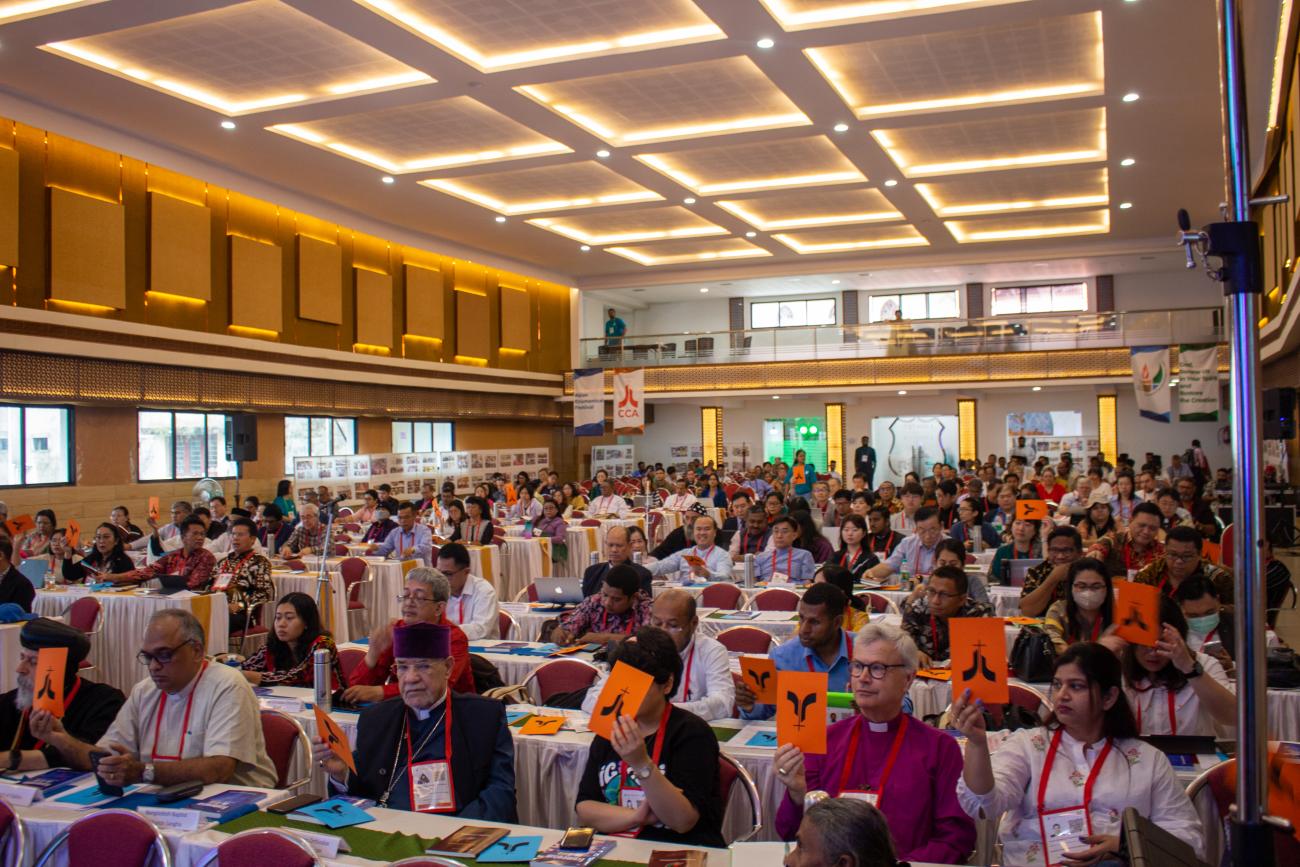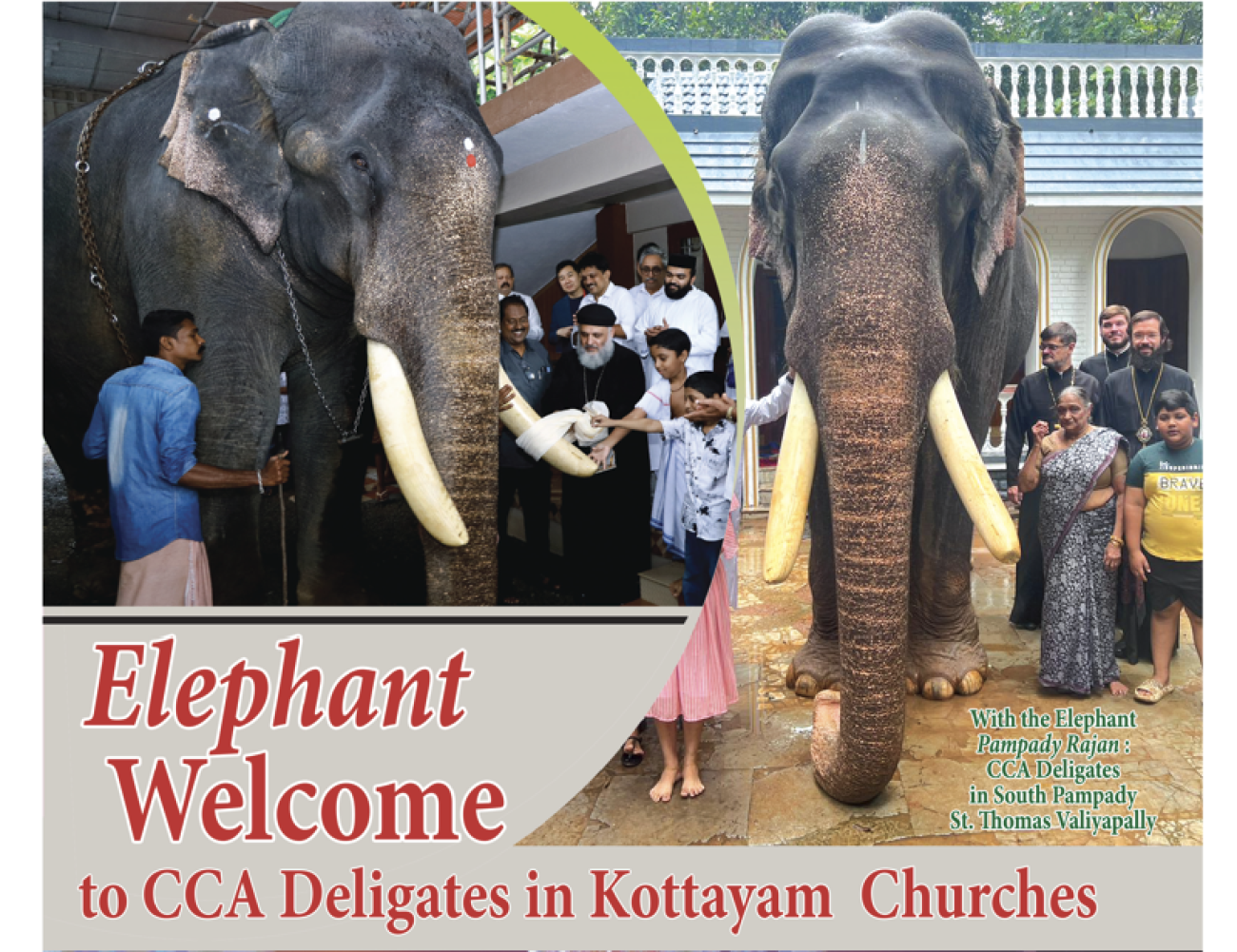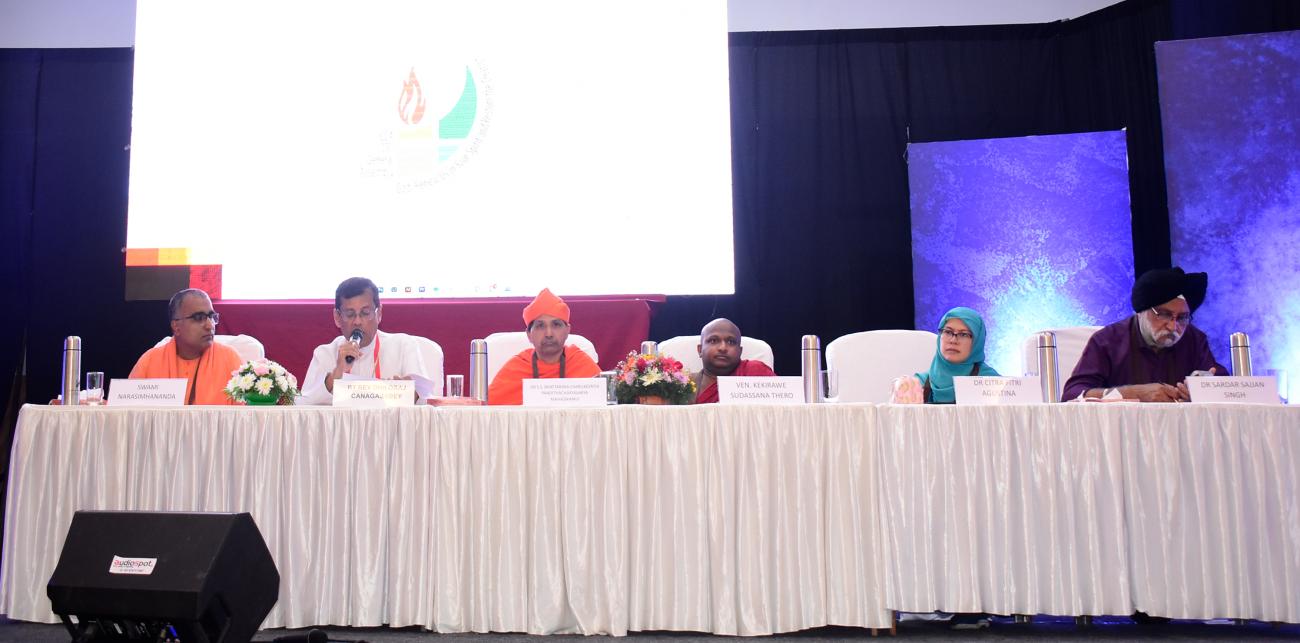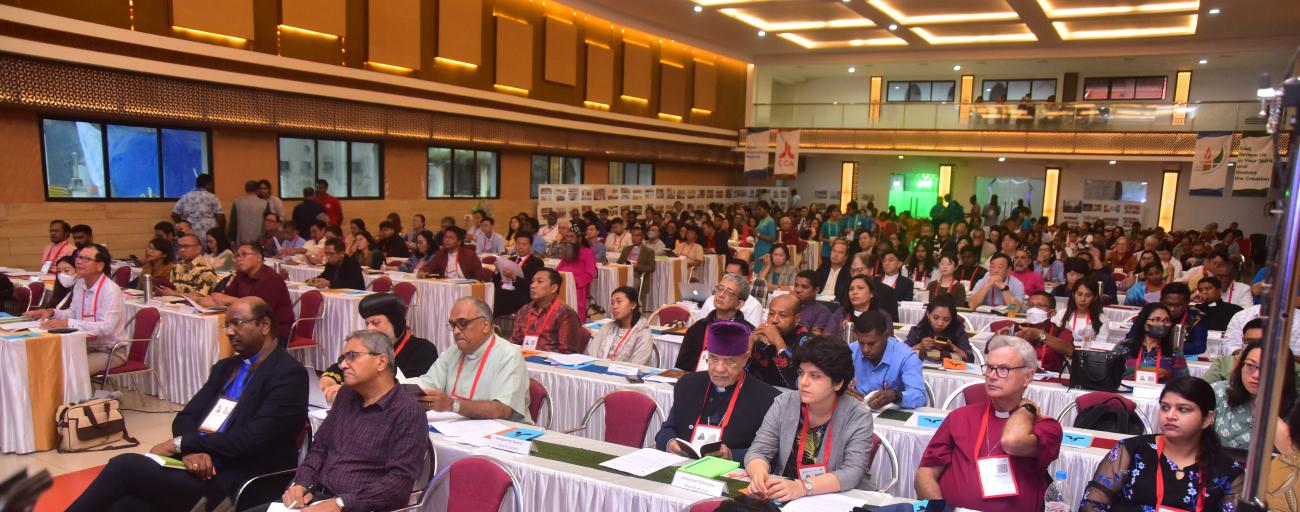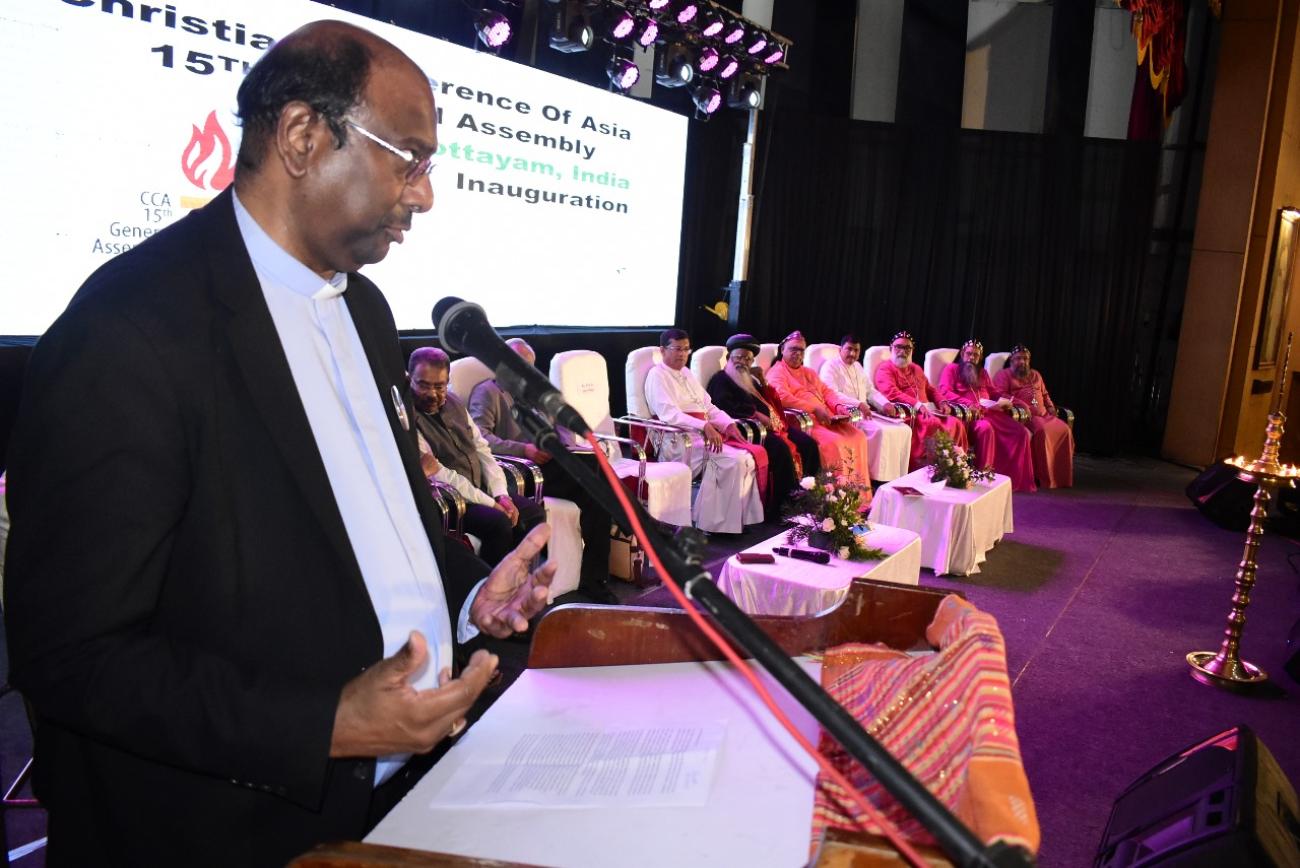CCA extends greetings to NCC India at its 29th Quadrennial Assembly
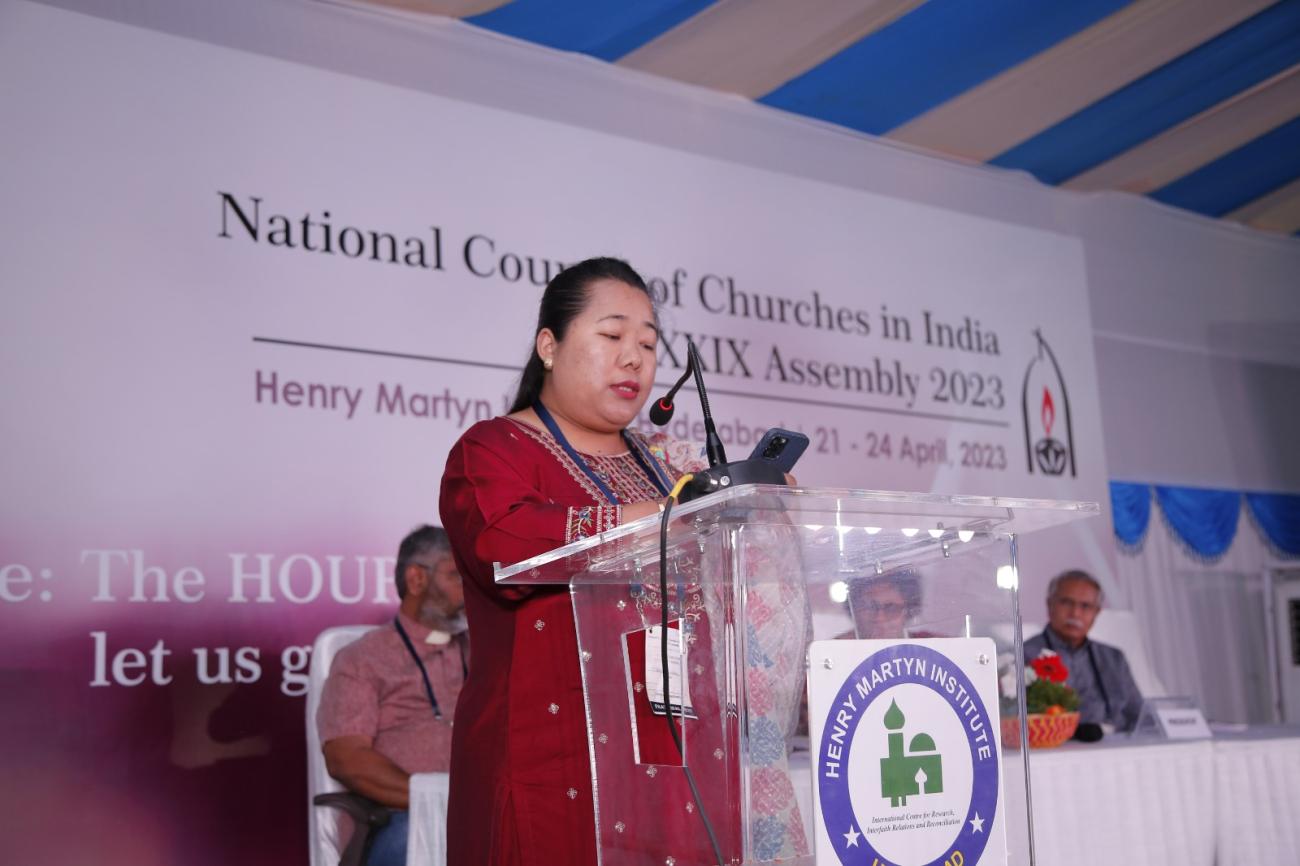
Ms Nirmala Gurung, CCA Executive Committee member from Nepal, reads the written message from the CCA General Secretary at a plenary session of the NCCI Assembly
Hyderabad, India: The Christian Conference of Asia (CCA) General Secretary has extended greetings and wishes to the delegates of the 29th Quadrennial General Assembly of the National Council of Churches in India (NCCI).
The General Assembly of NCCI was held from 21–24 April 2023 at the Henry Martyn Institute in Hyderabad, India and focused on the theme, ‘The Hour has Come: Let Us Get Going’. On behalf of the CCA General Secretary, Nirmala Gurung, a member of the Executive Committee of CCA from Nepal, attended the Assembly and conveyed a message of greetings.
A written message from the CCA General Secretary Dr Mathews George Chunakara was read out by Ms Gurung at a plenary session of the NCCI Assembly. The message appreciated the NCCI as “one of the first visible expressions of conciliar ecumenism in the world…having a legacy of more than a century of faithful ecumenical journey” and its key role in the formation of the CCA’s forerunner, the East Asia Christian Conference (EACC).
“The NCCI and CCA have been faithful co-pilgrims in the ecumenical movement, having journeyed together and pursued the common goal of mission in unity and witness, and building peace with justice. On the occasion of the 29th Quadrennial General Assembly of the NCCI, the member constituencies of CCA across Asia express our desire and hope for continued accompaniment and solidarity,” continued the message.
The NCCI, one of the world’s oldest national ecumenical councils, was founded in 1914 and was in turn a founding member of the CCA. The NCCI represents more than 15 million Christians in India through its 30 member churches. The CCA has 12 member churches in India, which are also members of the NCCI.
The CCA will hold its 15th General Assembly in Kottayam, India, from 27 September to 4 October 2023 on the theme, ‘God, Renew Us in Your Spirit and Restore the Creation’, with the support and partnership of the NCCI and five of the CCA’s member churches based in the state of Kerala.
The full text of CCA General Secretary’s Message of Greetings to the Quadrennial General Assembly of NCCI can be found here:



